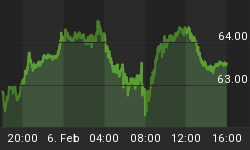The horrific attacks in Paris on Friday have, predictably, led to much over-reaction and demands that we do more of the exact things that radicalize people and make them want to attack us. The French military wasted no time bombing Syria in retaliation for the attacks, though it is not known where exactly the attackers were from. Thousands of ISIS fighters in Syria are not Syrian, but came to Syria to overthrow the Assad government from a number of foreign countries -- including from France and the US.
Ironically, the overthrow of Assad has also been the goal of both the US and France since at least 2011.
Because the US and its allies are essentially on the same side as ISIS and other groups - seeking the overthrow of Assad - many of the weapons they have sent to the more "moderate" factions also seeking Assad's ouster have ended up in the hands of radicals. Moderate groups have joined more radical factions over and over, taking their US-provided training and weapons with them. Other moderate groups have been captured or killed, their US-provided weapons also going to the radicals. Thus the more radical factions have become better equipped and better trained, while occasionally being attacked by US or allied planes.
Does anyone not believe this is a recipe for the kind of disaster we have now seen in Paris? The French in particular have been very active in arming even the more radical groups in Syria, as they push for more political influence in the region. Why do they still refuse to believe in the concept of blowback? Is it because the explanation that, "they hate us because we are free," makes it easier to escalate abroad and crack down at home?
It may not be popular to say this as emotions run high and calls ring out for more bombing in the Middle East, but there is another way to address the problem. There is an alternative to using more military intervention to address a problem that was caused by military intervention in the first place.
That solution is to reject the militarists and isolationists. It is to finally reject the policy of using "regime change" to further perceived US and western foreign policy goals, whether in Iraq, Libya, Syria, or elsewhere. It is to reject the foolish idea that we can ship hundreds of millions of dollars worth of weapons to "moderates" in the Middle East and expect none of them to fall into the hands of radicals.
More bombs will not solve the problems in the Middle East. But a more promising approach to the Middle East is currently under fire from the isolationists in Washington. The nuclear deal with Iran ends UN sanctions and opens that country to international trade. Just last week the presidents of France and Iran met to discuss a number of trade deals. Other countries have followed. Trade and respect for national sovereignty trumps violence, but Washington still doesn't seem to get it. Most presidential candidates compete to thump the table loudest against any deal with Iran. They will use this attack to propagandize against approving trade with Iran even though Iran has condemned the attack and is also in the crosshairs of ISIS.
Here is the alternative: Focus on trade and friendly relations, stop shipping weapons, abandon "regime change" and other manipulations, respect national sovereignty, and maintain a strong defense at home including protecting the borders from those who may seek to do us harm.
We should abandon the failed policies of the past, before it's too late.















